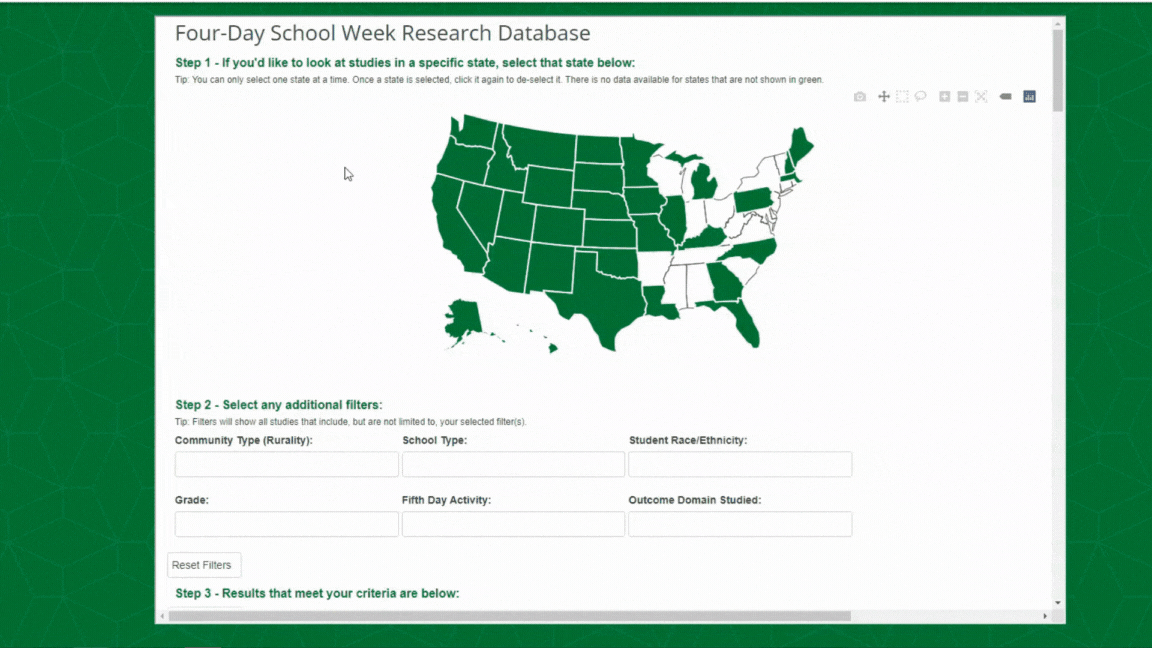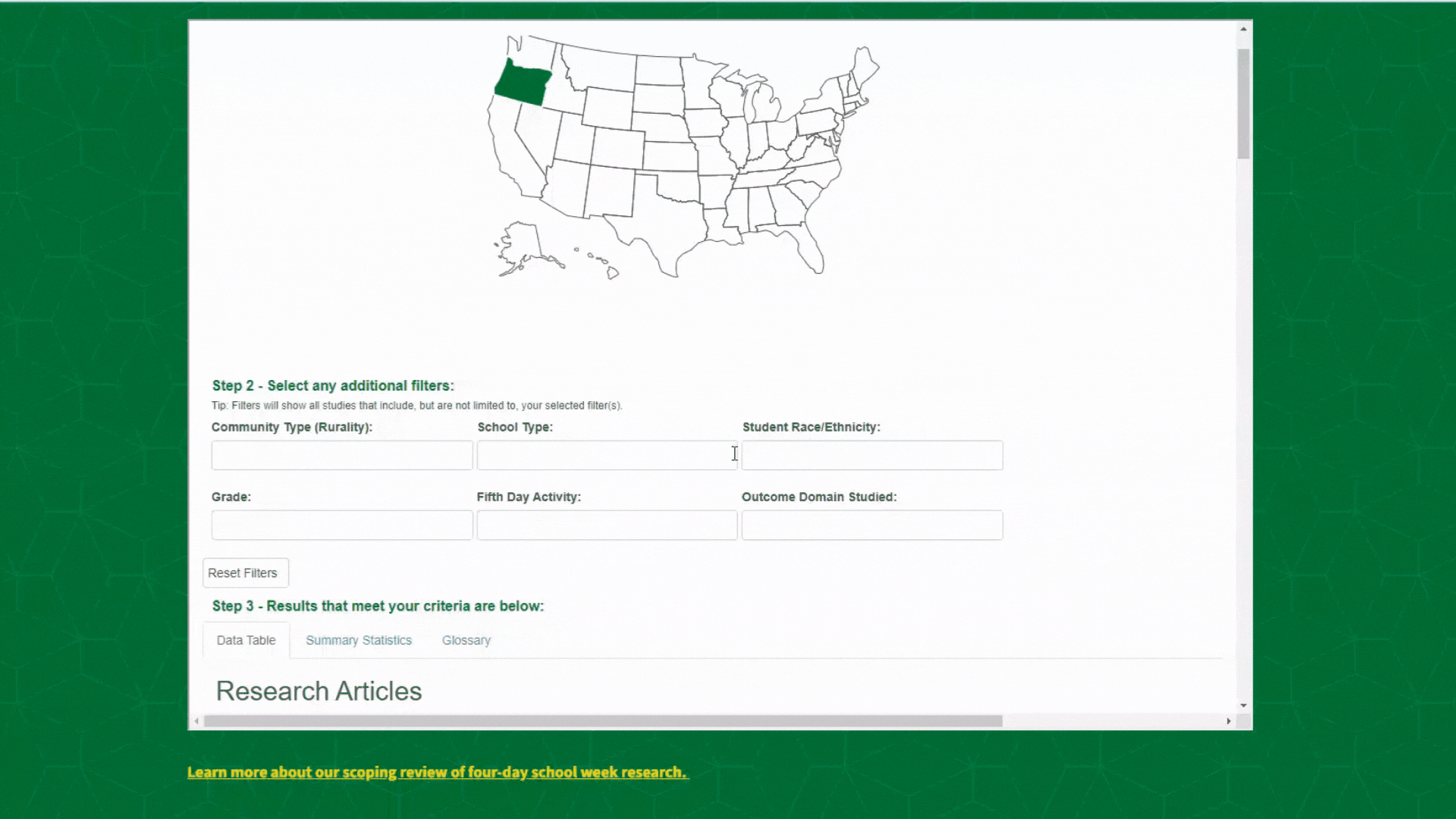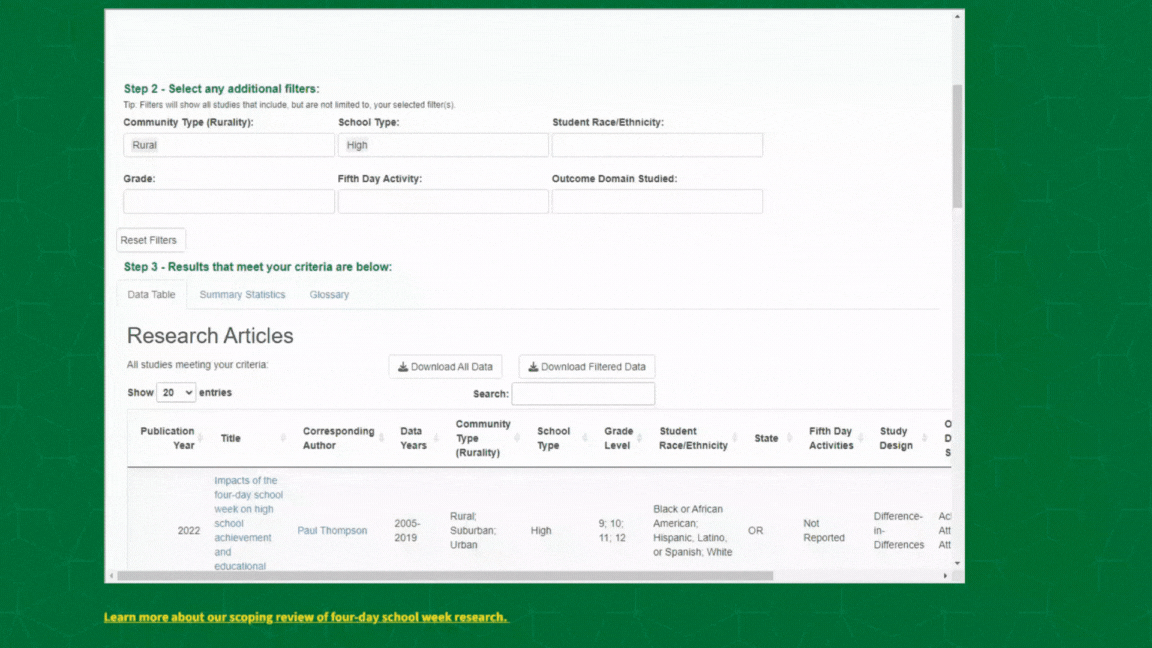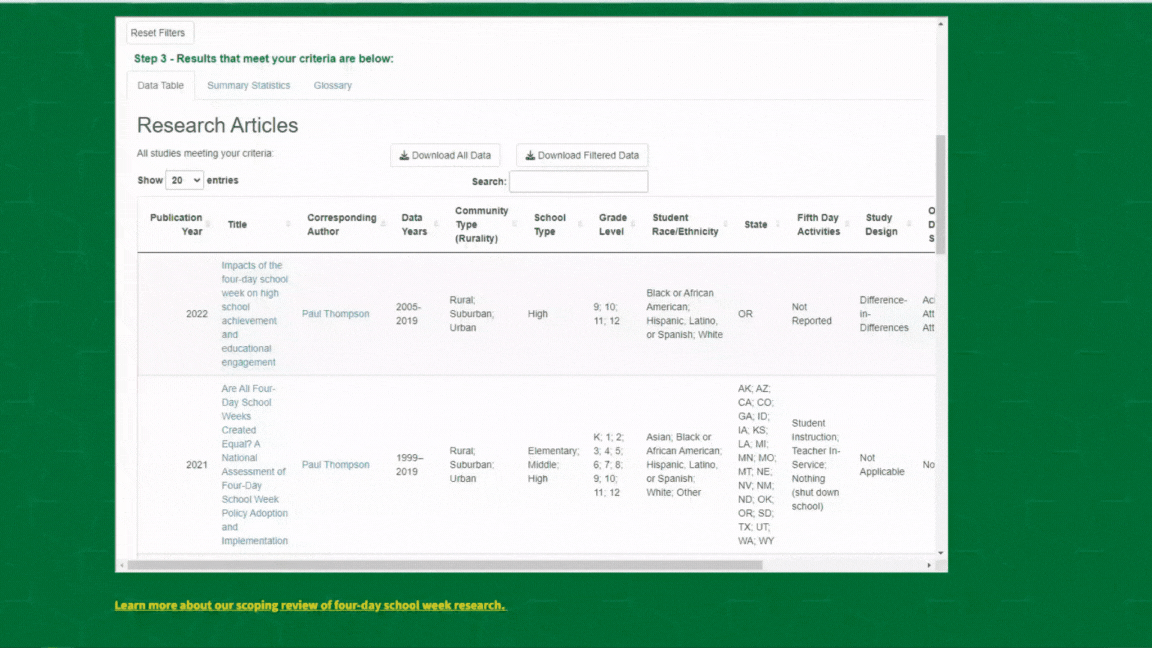By Maria Schweer-Collins, PhD, Research Assistant Professor, HEDCO Institute for Evidence-Based Educational Practice
Across the U.S., school leaders have been rethinking the traditional school week, with an increasing number of school districts implementing a four-day school week, particularly in rural areas. In November, the HEDCO Institute published a brief report summarizing what research has been done to date, such as what student populations, schools, and states have been studied. In today’s post, we'll share a quick overview of the findings on the four-day school week scoping review. Then, we will introduce you to an interactive data tool. This tool, built by researchers at the HEDCO Institute, can help you explore studies on the four-day school week and how they connect to your school and the students you support.
Overview of findings on the HEDCO Institute’s four-day school week scoping review
The scoping review conducted by the HEDCO Institute aimed to systematically identify and describe all existing research studies on the four-day school week within the United States. The report answers the question: What research has been done on the four-day school week? Because we conducted a scoping review, we can’t yet provide information that describes the impact of the four-day school week on students, teachers, or schools, but stay tuned because those additional findings will be released soon in 2024.
Our research team found 111 studies on the topic of the four-day school week and described the types of evidence in those studies. We also held brief interviews with superintendents to get their thoughts on the four-day school week. So, what did we find?
Most studies (90%) focused on rural communities, primarily in states such as Missouri, Colorado, Oklahoma, and Oregon. Some studies included information about student outcomes that could be relevant in the context of moving from a traditional school week to a four-day school week. The most commonly examined outcomes were student educational achievement and student attendance.
What do superintendents say about the four-day school week?
Superintendents we interviewed raised important insights about the decision-making process for transitioning to a four-day school week. One central theme was ensuring that the community and district has adequate supports for students on that “fifth day.” One superintendent summarized this by saying:
“It goes back to what can that community do on that Friday that keeps those kids busy and active.”
Another consideration raised by superintendents was the timing for implementing a four-day school week amidst other considerations facing district leaders:
“[We] want kids to have more days in school. [We] want kids to catch up from COVID, or catch up from being behind in reading and in math. And so, these conversations [in the school district] are more about how now is not the right time to go to a four-day school week.”
One notable observation in the HEDCO report was the limited reporting by studies on contextual considerations, including the absence of information regarding students' race/ethnicity and a lack of detail on fifth-day activities. Superintendents also echoed the importance of considering the broader community context of the district:
“I think you have to consider that location, that region, the industry and the workers [of the community], the safety perspective, the health care perspective. All of that needs to be considered because you're making a community decision… You have to try to make decisions that are in alignment to your equity lens. What’s that for us? It's really ‘are we creating more barriers and obstacles by our decision or are we creating more access and opportunity by our decision?’ ‘What are the consequences,’ you know? ‘And are you increasing a disparity for those that are disadvantaged?’”
The HEDCO Institute’s four-day school week interactive tool: A research database
Because context is critical to understanding when research applies to specific school settings and student populations, researchers at the HEDCO Institute developed an interactive tool to help you answer the question: What research exists on the four-day school week for my population of interest?
Our interactive tool gathers all the research studies on the four-day school week that were completed on or before May 2023. The tool is like a control panel that shows information in an easy-to-understand way, using charts, graphs, and tables. Just like a car dashboard shows you information about speed, fuel, the weather, tire pressure, mileage, and other things, our tool presents key details or numbers about the existing research on this topic, allowing you to see and understand research findings in a succinct, visually appealing way. With our tool, you can find out what research studies exist about the four-day school week for the specific student group or school context you’re most interested in.
A step-by-step guide for making the interactive tool work for you
First, access the web-based interactive tool here.
Next, you can decide if you are interested in all the available research or if you want to understand the research as it applies to your specific state. If you want to filter the research for your state only, you can click on the map and your corresponding state. Here we’ve filtered for Oregon research studies only.

Now you can select other school, student, or study features of interest. For example, you might be interested in the research on rural schools, for high school students. Once you click on each filter, you can select those options from a drop-down menu. You can select one or more features, but you aren’t required to have a certain number of features selected.

Now that you have selected the types of studies that match your school setting or student population, a table that summarizes the different research studies that meet the selected criteria will show up below the map. You can read about those studies on the webpage or download these data so you can reference them later.

Please note that in the data table, we have also provided information for research study corresponding authors in case you would like to connect with the person who conducted a given research study.
If you want to start over, you can click the “Reset filters” button at the bottom left. We hope this tool is useful as your district considers what evidence currently exists on the four-day school week.

HEDCO Institute Blog 7- December 12, 2023

